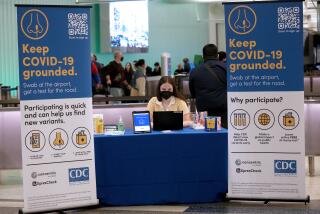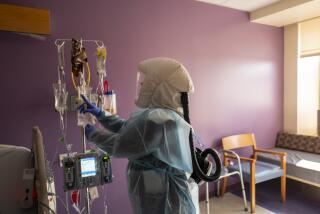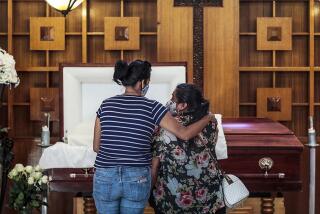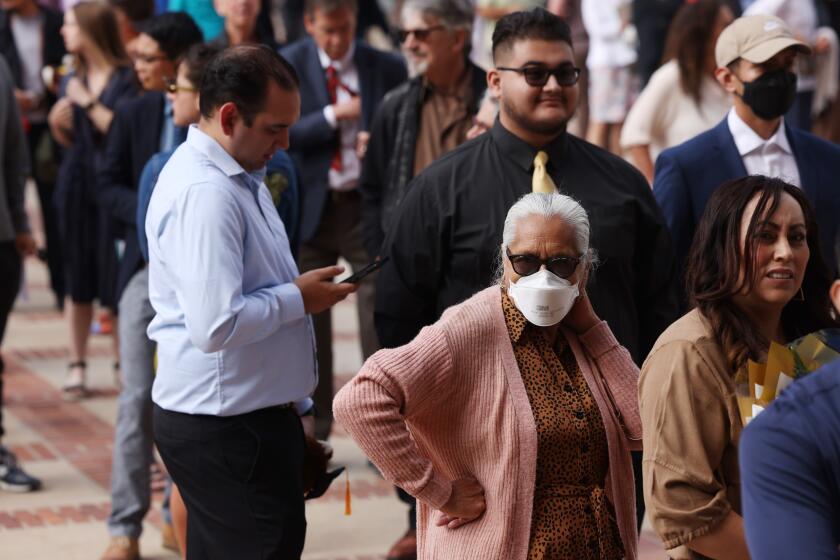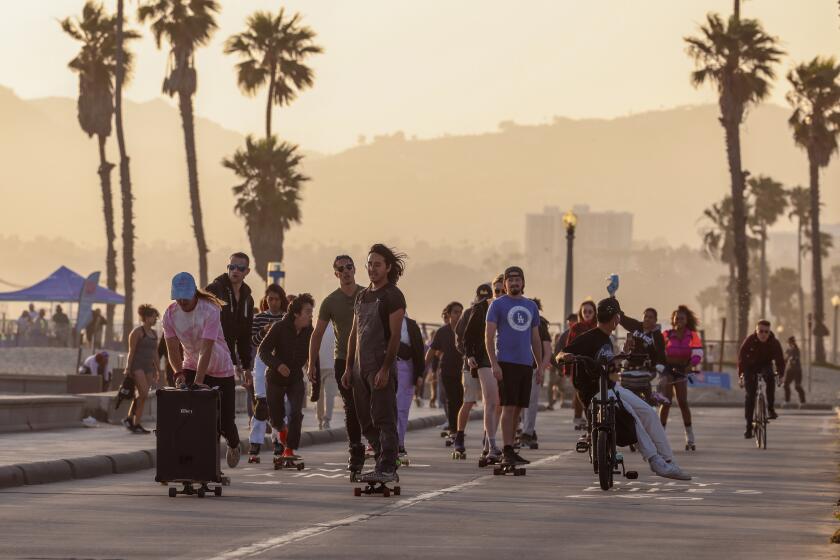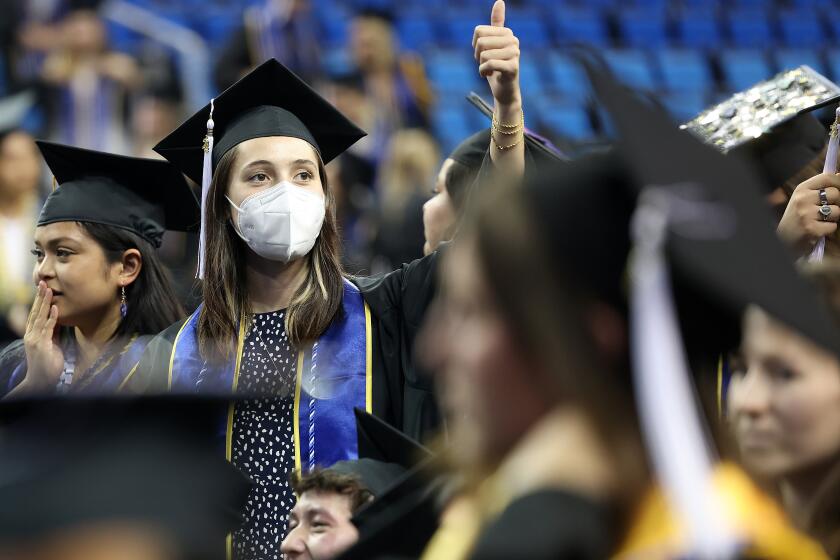Coronavirus surpasses cancer, heart disease to become L.A. County’s No. 1 killer
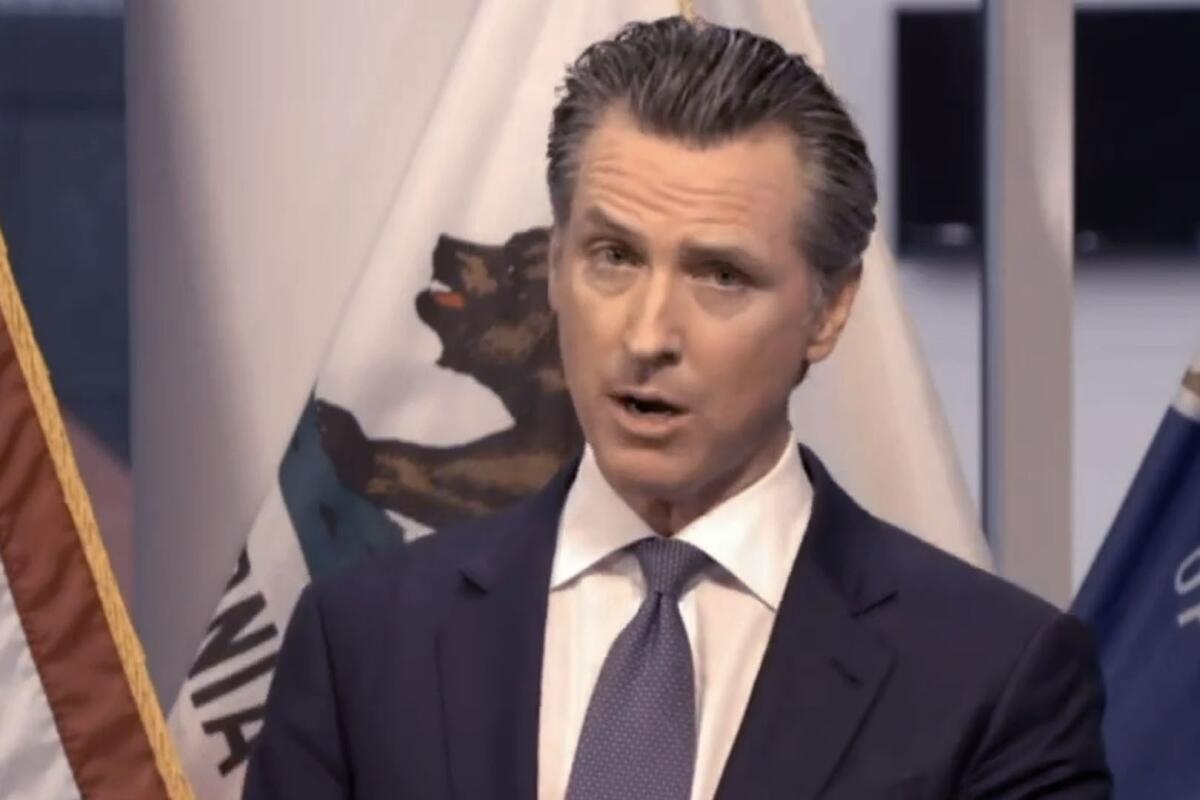
The new coronavirus became the leading cause of death in Los Angeles County on Thursday as the number of fatalities continued to climb across California, leading officials to say conditions are still too volatile to begin lifting the stay-at-home orders that have helped slow the spread of the virus.
More than 1,800 people have died across the state, with Wednesday marking the highest daily fatality total.
“It’s a reminder we’re not out of the woods yet,” Gov. Gavin Newsom said Thursday.
Deaths in Los Angeles County — which has become the state’s epicenter of the outbreak — are approaching 800, enough for the novel coronavirus to surpass fatalities from cancer, flu, emphysema and heart disease.
Barbara Ferrer, the county’s public health director, confirmed 68 new coronavirus-linked deaths Thursday. The county also reported 1,081 new COVID-19 cases — pushing the overall number to 17,508.
Despite the uptick in deaths, public health officials say hospitals are not being overwhelmed, though they continue to see a steady flow of patients.
Models unveiled this week project that, should residents continue to abide by stay-at-home orders and maintain social distancing when they do venture outside, Los Angeles County should have enough hospital and ICU beds, as well as respirators, to accommodate the expected number of coronavirus patients.
California has experienced only a fraction of the deaths of coronavirus hot spots such as New York and New Jersey, and experts attribute that in part to early orders that forced people to observe social distancing and stay home. Newsom reiterated Thursday that it is too early to lift those rules and urged people to stay home despite this week’s heat wave.
The governor said he fears that if people go to beaches and parks, he’ll soon be reporting a sizable increase in the number of confirmed cases and possibly hospitalizations.
“I don’t think anybody wants to hear that. I don’t want to share that information. But that’s really less up to me, it’s more up to all of you,” he said.
On Wednesday, Newsom said most of the six milestones he set to consider loosening the stay-home order he issued last month have not been met. The only change the governor has made is to allow some elective surgeries to again be scheduled in hospitals, citing sufficient capacity.
“It will be those indicators that drive our decision-making,” he said Thursday. “Not dates. We don’t debate dates. We look at the facts objectively.”
The governor also announced Thursday that more than 1.1 million Californians with student loan debt will now be eligible for three months’ relief.
Twenty-one of the 24 largest student loan servicers in the state have agreed to a 90-day forbearance, meaning borrowers may stop repaying their loans without facing penalties such as late fees or fines, debt collection lawsuits or negative impacts to their credit ratings, Newsom said.
Borrowers will also receive support in working out new payment plans.
“I want to just applaud those ... servicers for their willingness to step up and help support those that are struggling to pay their student loan debts,” Newsom said.
The state has also suspended California’s ban on grocery stores providing single-use plastic bags amid concerns that clerks may be at risk for exposure to the coronavirus if shoppers are required to supply their own reusable bags.
Newsom announced Thursday that he had signed an executive order to suspend the 2016 plastic bag ban for 60 days after hearing concerns from the California Grocers Assn. about shoppers bringing reusable bags from home that are handled by store clerks filling them with groceries.
“We are being cautious to make sure there is no transmission of the virus,” said Dave Heylen, a vice president for the grocers’ group. He said the grocers will go back to abiding by the plastic bag ban when the order expires.
The executive order does not affect the more than 100 cities and counties that adopted their own ordinances banning or regulating single-use plastic bags.
The governor’s executive order also approved a 60-day pause in redemption of beverage containers in stores and a mandate for recycling centers to operate a minimum number of hours.
Newsom’s order said the suspensions are “critical to protect the public health and safety and minimize the risk of COVID-19 exposure for workers engaged in essential activities, such as those handling reusable grocery bags or recyclable containers where recycling centers are not available.”
Mark Murray, executive director of Californians Against Waste, which had supported the Legislature’s approval of the ban, said the order is unnecessary.
“Reusable bags are perfectly safe, and pose zero threat to store employees and other customers as long as consumers take responsibility to bag their own groceries,” he said.
McGreevy and Myers reported from Northern California, Fry and Kohli from Southern California. Times staff writers Luke Money, Andrea Castillo, Nina Agrawal and Phil Willon contributed to this report.
More to Read
Start your day right
Sign up for Essential California for news, features and recommendations from the L.A. Times and beyond in your inbox six days a week.
You may occasionally receive promotional content from the Los Angeles Times.
